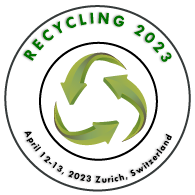BIO- ELECTROCHEMICAL TREATMENT SYSTEM
Bioelectrochemical systems (BESs) are dynamic systems that combine the removal of pollutants from wastewater with the generation of electricity using the interaction between microorganisms and solid electron acceptors/donors (e.g., an electrode).
Under the banner of "microbial electrochemical technologies (METs)," microbial fuel cells are extended to a variety of applications such as wastewater treatment and biobased product manufacture in addition to bioenergy. If the reducing equivalents created by substrate degradation are employed to treat both complex organic and inorganic contaminants in wastewater instead of electricity, the procedure is known as bioelectrochemical treatment (BET). Bioelectrochemical therapy offers the potential to overcome the limitations of conventional treatment techniques while also reducing the complexity of contaminants. This chapter presents an in-depth look at BET for wastewater remediation, as well as the mechanisms involved in treating the pollutant via bacteria respiration in the presence of solid electrodes via direct and indirect oxidation.
Related Conference of BIO- ELECTROCHEMICAL TREATMENT SYSTEM
BIO- ELECTROCHEMICAL TREATMENT SYSTEM Conference Speakers
Recommended Sessions
- ADVANCED RECYCLING: PHYSICAL & CHEMICAL
- BIO- ELECTROCHEMICAL TREATMENT SYSTEM
- BIO-PLASTICS
- BIOREMEDIATION
- CHALLENGES IN COLLECTION & SEGREGATION OF PLASTICS WASTE
- CHEMICAL WASTE RECYCLING
- CIRCULAR ECONOMY FOR ELECTRIC VEHICLES (EV) BATTERIES
- CIRCULAR PLASTICS FOR PACKAGING
- E-WASTE
- FOOD AND AGRICULTURAL WASTE RECYCLING
- INDUSTRIAL WASTE RECYCLING
- METAL RECYCLING
- PAPER RECYCLING
- PLASTICS RECYCLING: CHALLENGES AND OPPORTUNITIES
- SOLID WASTE MANAGEMENT
- TECHNOLOGY & INNOVATION IN PLASTICS RECYCLING
- THERMAL WASTE RECOVERY
- WASTE RECYCLING AND MANAGEMENT
- WASTE WATER TREATMENT

